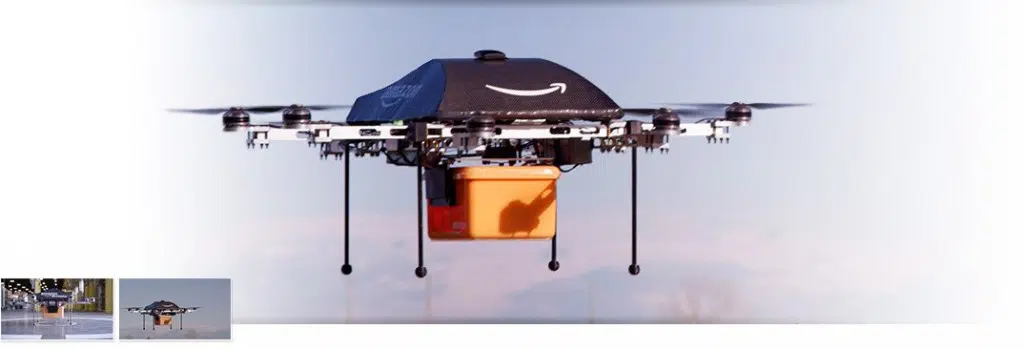If you’ve read the False Truth Mystery Serial, you know drones play a major role in the Jordan Fox Mystery.
Drone usage across the world is developing more quickly than the laws can keep up. One story I’ve been following is Amazon’s effort to use drones to get packages into customers’ hands within thirty minutes or less after an order.
The service would be called Prime Air. Above is a picture of what the delivery drones might look like, though the company is experimenting with various models.
But according to CNBC, Amazon’s drone delivery plans may not work out for some time. That’s because U.S. regulators are proposing rules that would require a drone operator to keep the flying devices within their line of sight. Monitoring a drone on a camera wouldn’t be enough. The FAA has also drafted rules that would not allow drones to fly over people, nor above five-hundred feet.
Other companies besides Amazon are experimenting with the drone delivery option, including a company in China that delivers ginger tea and one in Germany that delivers medicines and other goods.
So what do you think? Are drones the way of the future when it comes to package deliveries? Or are they the stuff science fiction—and mystery fiction—is made of?
Leave a comment with your thoughts!





My background was 30 years serving the military and law enforcement with high end security devices. The problem even in these markets is always getting the government approval. When dealing with the FAA and other government entities they will stall these approvals for a long time. Also
with HS and the problems with our internal security it will be awhile before we see drones flying everywhere delivering packages. We are close and it will happen but infrastructures will have to be established.
Thanks for commenting, Carl. When I did the research on this topic for False Truth 8, I found exactly what you’re saying here. There are real risks that amateur drones can interfere with aviation. But commercial drones are more sophisticated and powerful. I’m not a big fan of over-regulation, but it seems like caution is a good alternative here.